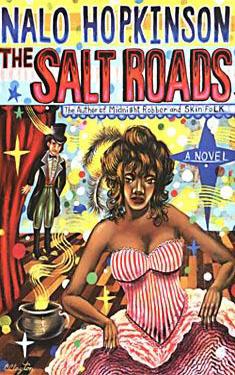Nalo Hopkinson
Completed 5/28/2016, reviewed 6/1/2016
4 stars
Nalo Hopkinson is fast becoming one of my favorite
writers. I’ve only read one other book
of hers, “Brown Girl in the Ring”, but that was a fantastic book. This one is also good, and large in scope
considering it’s a rather short book, under four hundred pages. It encompasses the lives of three women in
three different times in history, 1700s Haiti
before the slave uprising, 1800s Paris , and
fourth century Jerusalem . Their lives are intertwined by the actions of
a goddess who influences their life choices.
All three main characters are incredible. First there’s the slave woman who is the
midwife and healer for the other slaves on her plantation. She is the elder, and bears the responsibility
for keeping the old ways. Second,
there’s Jeanne Duval, a mixed race Haitian dancer and actress in Paris . She is the lover of a famous French
poet. The character is a fictionalized
version of an actual historical person.
The third is the Egyptian prostitute and slave Meritet who goes on an
adventure to what was Jerusalem after its fall
and becomes St. Mary of Egypt . Hopkinson creates three very vivid characters
with lots of life who traverse intense difficulty to find resolution in their
lives.
Needless to say, a major theme of the novel is slavery, but
it also discusses racism and sexuality.
It has a lot to say about same and opposite sex relationships, as well
as interracial relationships and mixed race persons. The brilliance of Hopkinson I think is that
she can bring all this discussion into her characters while still maintaining
awesome prose and plot.
The one tough spot for me was the story line of the goddess
Ezili. It took me most of the book to
really get into her sections. I found
the prose in her sections very difficult to absorb, particularly at the
beginning. It became a little easier to
follow once I understood how she was taking possession of the characters.
The narrative is a little non-traditional. It bounces between first and third person and
between the three main characters and the goddess. Except for the aforementioned story line of
Ezili, I didn’t have any trouble with it.
I give the book four stars out of five. I took off one star for the Ezili narrative. It prevented me from feeling total connection
with the book. However, that shouldn’t
prevent one from reading the book. The
plots of the three women are completely absorbing, leaving you hoping for happy
endings for their extremely difficult lives.

No comments:
Post a Comment